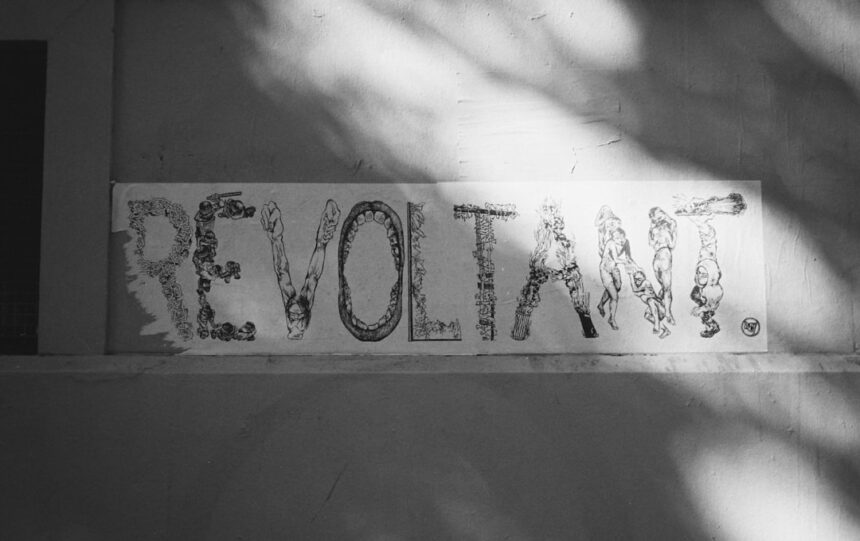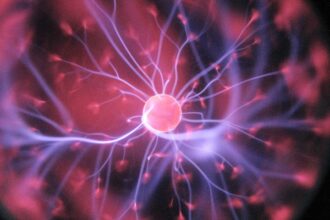Depersonalization-derealization is a complex psychological phenomenon that can leave you feeling detached from your own thoughts, feelings, and sense of self. It often manifests as a feeling of being an outside observer of your own life, as if you are watching yourself from a distance. This experience can be disorienting and unsettling, leading to confusion about your identity and reality.
You may find yourself questioning whether you are truly present in the moment or if you are merely a spectator in your own existence. Understanding this condition is crucial for recognizing its impact on your daily life and mental well-being. The terms “depersonalization” and “derealization” are often used interchangeably, but they refer to distinct experiences.
Depersonalization involves a sense of detachment from oneself, while derealization pertains to a feeling of disconnection from the external world. You might feel as though your surroundings are unreal or dreamlike, which can exacerbate feelings of anxiety and isolation. These experiences can occur in various contexts, including during periods of extreme stress or trauma, and can be transient or chronic.
Gaining insight into these phenomena can help you navigate the challenges they present.
Key Takeaways
- Depersonalization-Derealization is a dissociative disorder characterized by feeling detached from oneself and the surrounding environment.
- Symptoms include feeling like an outside observer of one’s thoughts and actions, emotional numbness, and a sense of unreality.
- Depersonalization-Derealization can lead to anxiety, depression, and difficulty in forming and maintaining relationships.
- Individuals with Depersonalization-Derealization may struggle with work or school performance due to cognitive difficulties and lack of motivation.
- Seeking professional help, practicing mindfulness, and building a support system are important coping strategies for managing Depersonalization-Derealization.
Symptoms and Characteristics of Depersonalization-Derealization
The symptoms of depersonalization-derealization can vary widely from person to person, but they often include feelings of unreality, emotional numbness, and a distorted sense of time. You may experience a sense of detachment from your body, as if you are observing yourself from outside. This can lead to a profound sense of confusion and disorientation, making it difficult to engage fully with your surroundings.
Additionally, you might notice that your emotions feel muted or distant, which can further complicate your ability to connect with others. Another common characteristic is the sensation that the world around you is not quite real. You may perceive your environment as foggy or dreamlike, which can create a sense of alienation from everyday experiences.
This disconnection can be particularly distressing when it interferes with your ability to enjoy activities that once brought you joy. Recognizing these symptoms is essential for understanding how they affect your life and for seeking appropriate support.
The Psychological and Emotional Impact of Depersonalization-Derealization

The psychological impact of depersonalization-derealization can be profound, often leading to increased anxiety and depression. You may find yourself grappling with feelings of hopelessness as the detachment from your own identity becomes more pronounced. This emotional turmoil can create a vicious cycle, where the more you struggle to understand your experiences, the more isolated and distressed you feel.
It’s not uncommon for individuals experiencing these symptoms to develop a heightened sense of self-awareness that can become overwhelming. Moreover, the emotional impact can extend beyond mere feelings of sadness or anxiety. You might experience a pervasive sense of emptiness or a lack of purpose, which can make it challenging to engage in meaningful activities or relationships.
The struggle to connect with your emotions can lead to frustration and despair, as you yearn for a sense of normalcy that feels just out of reach.
The Social and Interpersonal Impact of Depersonalization-Derealization
| Metrics | Findings |
|---|---|
| Prevalence | Estimated to affect 1-2% of the general population |
| Impact on relationships | Can lead to feelings of detachment from loved ones |
| Social withdrawal | Individuals may avoid social situations due to feelings of unreality |
| Work and productivity | Depersonalization-derealization can impair work performance and productivity |
| Treatment outcomes | Therapy and medication have shown some effectiveness in improving social and interpersonal functioning |
The social implications of depersonalization-derealization can be significant, often leading to strained relationships with friends, family, and colleagues. You may find it difficult to relate to others or engage in social situations due to feelings of detachment. This disconnection can create barriers in communication, making it challenging for you to express your thoughts and emotions effectively.
As a result, you might withdraw from social interactions altogether, fearing that others will not understand what you are experiencing. Additionally, the impact on interpersonal relationships can lead to misunderstandings and frustration among those close to you. Loved ones may struggle to comprehend your experiences, which can result in feelings of isolation and loneliness.
You might feel as though you are trapped in your own world, unable to bridge the gap between your internal experiences and external realities. Recognizing these social challenges is crucial for fostering understanding and support within your relationships.
The Occupational and Academic Impact of Depersonalization-Derealization
In the workplace or academic settings, depersonalization-derealization can hinder your ability to perform at your best. You may find it challenging to concentrate on tasks or engage fully in discussions due to feelings of detachment. This lack of focus can lead to decreased productivity and performance, which may further exacerbate feelings of inadequacy or frustration.
Moreover, the impact on your professional or academic life can create additional stressors that compound your experiences of depersonalization-derealization. You may worry about how your symptoms will affect your relationships with colleagues or peers, leading to increased anxiety about social interactions in these environments.
This cycle can create a barrier to success and fulfillment in both work and school settings, making it essential to seek strategies for managing these challenges effectively.
The Physical Health Impact of Depersonalization-Derealization

While depersonalization-derealization is primarily a psychological experience, it can also manifest physically in various ways. You may notice an increase in physical symptoms such as headaches, fatigue, or gastrointestinal issues as a result of chronic stress and anxiety associated with these experiences. The mind-body connection is powerful; when you are emotionally distressed, it often translates into physical discomfort.
This interplay can create a feedback loop where physical symptoms exacerbate feelings of detachment and vice versa. Additionally, neglecting physical health due to emotional struggles can lead to further complications. You might find it challenging to maintain a healthy lifestyle when dealing with depersonalization-derealization, as motivation wanes and self-care becomes less prioritized.
This neglect can contribute to a decline in overall well-being, making it even more difficult to manage the psychological aspects of the condition. Recognizing the physical health implications is vital for developing a holistic approach to recovery.
Coping Strategies for Depersonalization-Derealization
Finding effective coping strategies is essential for managing the symptoms of depersonalization-derealization. One approach is grounding techniques, which help anchor you in the present moment and reconnect with your surroundings. Simple practices such as focusing on your breath, engaging in mindfulness exercises, or using sensory experiences—like holding an object with texture—can help bring you back into your body and environment.
These techniques serve as reminders that you are indeed present and connected. Another valuable strategy is journaling about your experiences. Writing down your thoughts and feelings can provide clarity and help you process what you are going through.
It allows you to externalize your internal struggles and gain insight into patterns that may emerge over time. Additionally, seeking support from trusted friends or support groups can foster connection and understanding as you navigate this challenging experience together.
Seeking Professional Help for Depersonalization-Derealization
If you find that depersonalization-derealization significantly impacts your daily life, seeking professional help is crucial. Mental health professionals can provide valuable insights into the underlying causes of your experiences and offer tailored treatment options. Therapy modalities such as cognitive-behavioral therapy (CBT) have shown promise in helping individuals manage their symptoms by addressing negative thought patterns and developing coping strategies.
Medication may also be an option for some individuals experiencing severe symptoms. A psychiatrist can evaluate whether pharmacological interventions could help alleviate anxiety or depressive symptoms associated with depersonalization-derealization. It’s important to remember that seeking help is not a sign of weakness; rather, it demonstrates strength and a commitment to improving your mental health.
The Impact of Depersonalization-Derealization on Relationships
The effects of depersonalization-derealization extend deeply into personal relationships, often creating challenges that require understanding and patience from both parties involved. You may find it difficult to express yourself fully or engage emotionally with loved ones due to feelings of detachment. This disconnect can lead to misunderstandings or frustration on both sides, as those close to you may struggle to comprehend what you are experiencing.
Open communication is vital in navigating these challenges within relationships. Sharing your experiences with trusted friends or family members can foster empathy and support while helping them understand what you are going through. Encouraging them to ask questions and express their concerns can also create an environment where both parties feel heard and validated.
The Stigma and Misunderstanding of Depersonalization-Derealization
Despite its prevalence, depersonalization-derealization is often misunderstood or stigmatized by society at large. Many people may dismiss these experiences as mere stress or anxiety without recognizing their complexity and validity as mental health conditions. This lack of understanding can lead individuals experiencing depersonalization-derealization to feel isolated or ashamed about their symptoms.
Combating this stigma requires education and awareness-raising efforts within communities. By sharing information about depersonalization-derealization through conversations or social media platforms, you contribute to breaking down misconceptions surrounding mental health issues. Encouraging open dialogue about these experiences fosters empathy and understanding while promoting acceptance for those who struggle with them.
Moving Forward: Recovery and Management of Depersonalization-Derealization
Recovery from depersonalization-derealization is possible with the right support and strategies in place. It’s essential to approach this journey with patience and self-compassion as healing takes time. Establishing a routine that incorporates self-care practices—such as regular exercise, healthy eating habits, and mindfulness techniques—can significantly enhance your overall well-being.
Additionally, staying connected with supportive individuals who understand what you are going through is crucial for maintaining motivation during challenging times. Engaging in therapy or support groups provides opportunities for shared experiences while fostering resilience in managing symptoms over time. Remember that recovery is not linear; there will be ups and downs along the way—but each step forward brings you closer to reclaiming a sense of self and connection with the world around you.
In conclusion, understanding depersonalization-derealization is vital for recognizing its multifaceted impact on various aspects of life—from psychological well-being to social interactions and physical health. By exploring coping strategies, seeking professional help when needed, and fostering open communication within relationships, you empower yourself on the path toward recovery and management of this complex condition.
Depersonalization-derealization disorder (DDD) can be a distressing experience, often leaving individuals feeling detached from their own thoughts and surroundings. While some may wonder if this condition is inherently “bad,” it’s important to understand its implications and how it affects daily life. For those seeking more information on mental health topics, including DDD, an insightful resource is available on the Unplugged Psychology website. You can explore a variety of articles that delve into psychological conditions and their impact on individuals. For further reading, consider visiting this Unplugged Psychology page, which offers a comprehensive look at various mental health issues and therapeutic approaches.
Learn More About Depersonalization & Derealization
FAQs
What is depersonalization-derealization disorder?
Depersonalization-derealization disorder is a mental health condition characterized by feeling detached from oneself (depersonalization) and feeling detached from the world around them (derealization). It can be a distressing and disruptive experience for those who suffer from it.
Is depersonalization-derealization disorder bad?
Depersonalization-derealization disorder can be distressing and disruptive to daily life for those who experience it. It can impact a person’s ability to function and can cause significant distress and impairment in social, occupational, or other important areas of functioning.
Can depersonalization-derealization disorder be treated?
Yes, depersonalization-derealization disorder can be treated. Treatment may include therapy, medication, and other supportive interventions. It is important for individuals experiencing these symptoms to seek help from a mental health professional.
What are the potential causes of depersonalization-derealization disorder?
The exact cause of depersonalization-derealization disorder is not fully understood, but it is believed to be related to a combination of biological, psychological, and environmental factors. Trauma, stress, anxiety, and certain personality traits may contribute to the development of this disorder.
Can depersonalization-derealization disorder go away on its own?
For some individuals, depersonalization-derealization disorder may improve or go away on its own over time. However, for others, it may persist and require treatment to manage symptoms and improve quality of life. It is important to seek help from a mental health professional if you are experiencing these symptoms.




